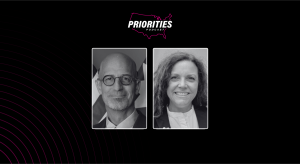LA’s chief procurement officer could open doors for tech startups

To streamline contracting across departments and make the city more friendly to technology startups, the City of Los Angeles is seeking its first chief procurement officer (CPO).
The position, though common for states, is the first its kind for the California city and tied to an effort to unify procurement across departments. LA’s Operations Innovation Team (O-Team), a group formed in 2015 to rethink city services, researched procurement processes and strategies for a year before recommending the position’s creation to the office of Mayor Eric Garcetti. Tech startups and companies with emerging technologies are likely to be one of the primary benefactors of the new position that will make contracts more accessible and the application process easier.
As a centralized authority, the CPO’s key role will be to implement a set of simple and expeditious procurement standards that can be duplicated across LA government’s many offices and departments. The O-Team reported it found more leadership was need to create this uniform procurement structure and has identified major improvements a CPO could make in so processes are consistent, department staff are accountable for implementing the right procedures and there are performance metrics to note problems and make improvements.
Decentralized contracting, the group noted, has “resulted in operational inefficiencies, fragmented procurements, lengthy processes and missed opportunities.”
Sascha Haselmayer, CEO of the procurement software company Citymart, said the position’s creation is a huge win for both tech startups and city government.
“This is a big opportunity!” Haselmayer said. “I would hope that [L.A.’s] procurement experts become collaborators early on in the process of procurements to really be part of defining the needs, establishing best practices on market research and helping departments to bring more problem-based procurements to market.”
Haselmayer said Los Angeles is just one of the many cities across the nation struggling to make contracts and purchasing processes more accessible to innovative tech companies and entrepreneurs. A common problem entrepreneurs face in the purchasing process is proving the value of new technologies, dealing with excessive financial requirements, liability insurance and prohibitive end-user license agreements (EULA).
“Over-specification is a real killer for startups, as often their approach will be new to the market, and few buyers will design RFPs allowing variations to what has been the preferred practice to-date,” Haselmayer said. “Another important barrier is timing. Things rarely happen as planned in municipal government, leading to delays that are especially costly to startups strapped for cash and with a lot of investors scrutinizing cost and length of sales cycles.”
To untangle its red tape, the city says it is looking for a procurement superhero to not only accomplish such tasks but also to set the tone for future CPOs. The job advertisement calls for a seasoned and certified expert with at least 10 years of procurement experience managing spending of at least $500 million per year. This is accompanied by a laundry list of other attributes where the common theme is an aptitude to think outside traditional boundaries.
Outside regulatory struggles, Haselmayer said internal outreach will likely be another big factor that determines the CPO’s success. Some of the biggest headaches aren’t from regulations or rules, but from an aversion departments have to work with city procurement offices. He said many like to “stay beneath the radar” when procuring services because there is an idea procurement experts will cause problems rather than solve them.
In the new role, the candidate will be required to be a subject matter expert, collaborating with the mayor’s office and across departments. In this push to modernize, Haselmayer said there is a lot of potential for improvement, since many of the systems attempt to make procurement easier for city employees rather than tech startups and companies.
Haselmayer’s own platform is used in cities including Philadelphia, New York, New Orleans, Detroit to simplify contracts and provide staff tools to broadcast RFPs to larger audiences. This effort has produced 30 vendor bids per RFP, he said, compared to a traditional average of two to four bids, with cities reporting that 50 to 80 percent of the bids are for new solutions.
“Electronic procurement platforms have largely focused on making the current approaches to procurement more efficient,” Haselmayer said. “Yet, we have seen no real gain in innovation, vendor diversity or opportunities for start-ups by cities that implemented these very logical digitization efforts.”
Los Angeles will soon prove whether its chief procurement officer is the catalyst needed to engage a new community of vendors that can bring new opportunities to the state and stimulate the tech ecosystem.






